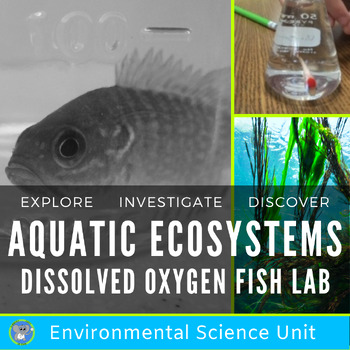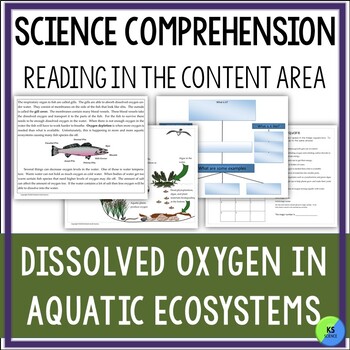Investigating the Affects of Dissolved Oxygen on Fish Respiration: An Earth Day Lab
Exploring dissolved oxygen makes a great Earth Day activity. Our 4th graders raise salmon all year and then release them. This lesson is a great expansion. It creates a lot of great discussions. It gets them thinking about taking care of our environment.
Aquatic Ecosystems are interesting places. There are so many different species that live in and around the water. This investigation uses live fish to learn about respiration, dissolved oxygen, and fish. Students will investigate to answer the question:
Does the amount of dissolved oxygen affect the respiration rate in fish?
Some may worry about live animals in the classroom. Try using feeder fish. Super cheap. Find someone that has a fish that eats them, so after the investigation, you give them away. You could also keep them in the classroom or have students get permission to take one home. None of our fish perished in the investigation. They still have oxygen in the water and are in it for a short time.
This investigation meets the *Next Generation Science Standards 3rd-5th Grade
Science and Engineering Practices. Students will follow the scientific method
to answer the question. Using the pre-reading and their prior knowledge,
students will write an educated hypothesis.
Students will be very excited to
use live fish in collecting data on the respiration rate. They will count how many times the gill cover opens and closes. Fish are great to have in the elementary classroom. After the investigation, students will calculate the mean, summarize their data, and
analyze the results.
There is background information for the teacher, an additional pre-reading passage, and follow-up reading pages. It helps the students understand and enjoy the experiment even more. A hands-on lesson makes the concept more real.
This is a wonderful way to learn about oxygen depletion in fish. Expand further on the causes of depletion and what they can do to help.
SHOP THIS POST
Expand the lesson into a complete unit.


.png)





